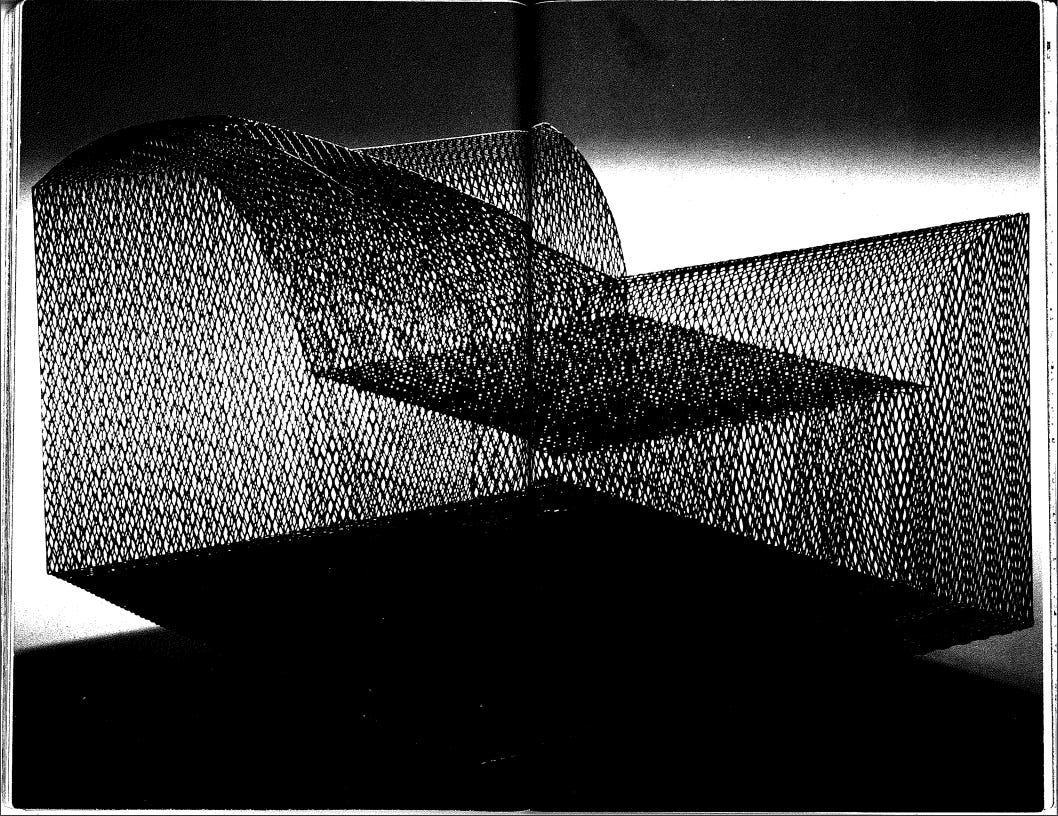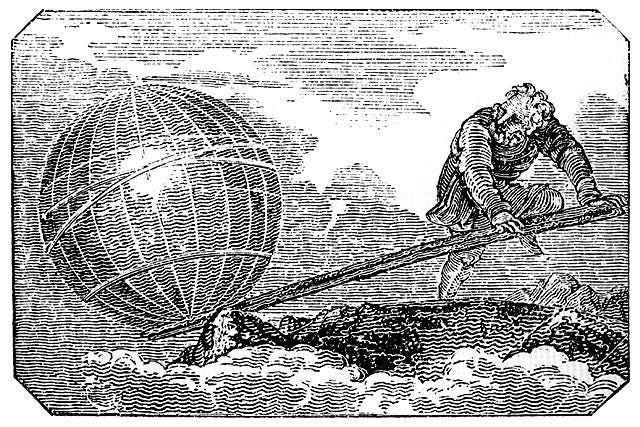Undefinable by Nature
Developing confidence to speak about the unspeakable
WABI SABI - CONFIDENCE - CHANGING DEFINITION OF WORDS - UNSPEAKABILITY
In studying the development of aesthetics, I came across the Japanese notion of wabi-sabi, a name for a “world view centered on the acceptance of transience and imperfection.” The phrase Wabi-sabi is self-contained: it is defined by its own transient definition. The words wabi and sabi previously had very separate definitions, however, over time their definitions have merged and become largely interchangeable. The words both are and describe an appreciation of ephemerality.
“When asked what wabi-sabi is, most Japanese will shake their head, hesitate, and offer a few apologetic words about how difficult it is to explain. Although almost every Japanese person will understand the feeling of wabi-sabi, …very few can articulate this feeling.”
- Leonard Kohen
Various writers have had different theories attempting to rationalize and explain this inexplicability. In this article, I will produce a few of my own theories, explanations, related concepts, and parallel examples of objects of self-containment. Then, I will explain methods of application, leverage, and transmission that you may apply in your life and designs. Finally, I will ask you to ignore me.
“...‘Those who know don’t say, those who say don’t know.’ On a pragmatic level, this precept is designed to reduce the misinterpretation of easily misunderstood concepts. As a consequence, a clear, expository definition of wabi-sabi has, for all intents and purposes, been studiously avoided.”
First, a few examples via various topics in order to develop a shared baseline to grow from.
Love
To understand an aspect of wabi-sabi for native English speakers, the word “love” serves as a potent metaphor. Compared to the Greek language, which has (up to) 8 different words for our umbrella term, the English word may contain many cascading nuances.
We allow space for misrepresentation, personally applied meaning, change over time, tension, and, ironically, self-contained-edly, love! All this is unimportant, so long as when you are told you are loved, you feel and believe it.
Similarly as a Japanese person questioned on wabi-sabi, you may face difficulty in a complete explanation, simply shrugging and saying you know how love feels. Dissection is only necessarily possible post-death. Therefore, so long as love holds meaning to us via means other than through strict, literary definitions, we need not define it. Despite its seeming elusivity, our sociological actions prove it a worthwhile endeavor, despite the fact that even the best love necessarily ends in divorce or death.
Through the analogue of love we can see that it is not that certain definitions are impossible, rather, it is the possibility that any externally imposed rigidity onto a subject may limit some equally critical component of it. In the case of love, the two variables are definitional exactitude and subjective experience of emotion. This observation may serve as evidence of a potential existence of an “alternative medium” to transmit the transcendental.
Entrepreneurship
Further, the subject of business entrepreneurship contains useful analogies for the topic. In Peter Thiel’s Zero To One he defines a dialect between what he calls technology, or vertical growth, and globalism, or horizontal growth. For him, the difference between technology and globalism is that of reformation and revolution. He distinguishes between incremental improvements (from a good typewriter to a better typewriter), and breakthrough technologies (from a typewriter to a word processor).
A recurrent, old medium serves as a source for globalism, horizontal growth and incremental improvements. This is a feature, not a bug. When a person is deriving combinatory knowledge from those around them, reiterating previousness, they can only become as intelligent as their dataset. They can only aim to become equal to, never greater than, the current greatest.
By contrast, alternative mediums provide a canvas onto which an artist may paint their nativity.
This iterative rewording in place of conceptual newness is present even in the most newborn fields of inquiry. The status quo bias is viral alongside the cult of youth. Both ought to be smashed in pursuit of great design.
“The reasonable man adapts himself to the world; the unreasonable one persists in trying to adapt the world to himself. Therefore, all progress depends on the unreasonable man.”
-George Bernard Shaw
Consider the paradoxical nature of a structured entrepreneurial class (or, classes in general.) The nature of entrepreneurism involves lateral, unstructured creativity, and therefore, cannot, and perhaps, should not, be formalized. In fields where creativity is valued, structured education often serves as a potentially destructive, limiting force, if misapplied. This idea is especially evident in the presence of an unwise art teacher.
This paradoxical nature of self-containment can be further illustrated by the fact that the book is based on a famous set of notes taken about an entrepreneurship class taught by Thiel.
Those without pre-existing knowledge of trends in an industry break them without caution, and perhaps without realizing. Thiel writes about this in the context of Silicon Valley, commending some programmers' disregard for social-cues and norms as a means of virtuous, purified expression. Combining their focus of singularity and consistently literal interpretations, they frequently have and create idiosyncratically specialized knowledge, and creative, valuable ideas.
Creativity cannot be crowdsourced, nor can it be sloganized. Summary ought to remain incomplete. If a summary can appropriately substitute for a full text, the text contains redundancies, and must be reduced.
Philosophy
The field of philosophy is another in which the careful balance of self-containment may lead a student astray. Look at the following image:
Do you think that after reading all these novels a student would better understand the subject? They may be able to better articulate points with other students of philosophy, however, they would simultaneously become distant from the very thing they sought to define.
I do not suggest that there is no useful information contained within these pages. Instead, I think that it is important to follow the chief rule of design: form must follow function. If these books exclude the external world from analysis, emphasize the philosophical locality, appeal to nerdy hypothesizers, the perpetually academic… (and it’s likely that any book does,) then it is a failure. Action, by first order, is a requirement for an honest education.
An ounce of action is worth a ton of theory.
-probably apocryphal, commonly credited to Ralph Waldo Emerson or Friedrich Engels
Let’s define 2 different types of knowledge. Explicit knowledge is easily transmittable, confirmable, and communicable by language. Implicit, or tacit knowledge, however, is not. One example of implicit knowledge is flying a plane. No matter how stylized the written description describing the flight, until you pilot, all the while at genuine risk of injury, you can never comprehend what's involved. By contrast, an example of implicit knowledge may be the departure schedule of a train, which is verifiable, communicable, and “precise”. Certain skills may require both implicit and tacit knowledge; they are not mutually exclusive.
Design / Takeaways
Since tacit knowledge cannot be easily transmitted, how can we create opportunities for direct experience on a large scale? We have inventions like the printing press and the internet to handle transmission of secondary knowledge, but we have no (or few) means of transmitting large-scale first-order experience. In fact, the problem is made more difficult by our grand saturation of images and audio. It is too easy to live vicariously (aka, in falsehood,) What is to be done?
Before any answers, here is a quick recap of ideas expressed in the form of three assertions:
Some pure forms of ideas are reduced to such fundamental elements that any seemingly innocent re-characterization (ex. summarization) may entirely slaughter their original identity.
First order knowledge is necessarily immune to ordinary modes of mass media transmission. They (it?) may only be attained through self-realization.
Tacit knowledge as a result of direct experience is useful and underrepresented in the pantheon of human thought.
Challenged by these limitations, with huge potentials for success, how can we create accordingly?
Projects based on self-defined passion are always going to be of higher quality than those of external metrics.
Due to this, it is probable that the greatest artwork is known only by its author (because it was made only for its author.) Too extreme? Consider that Thomas Paine’s Common Sense is 8,500 words, and Karl Marx’s Communist Manifesto is 13,500. Modern publishers have a near-monopoly on the industry and only accept texts around 100,000 words, because larger books are easier to sell. Even if you have not read the aforementioned texts, you know of their significance. The profit incentive and all forms of marketing (besides word of mouth and certain viralities) are examples of external, non-internally defined metrics: all corrosive to the soul of a piece.
"When a measure becomes a target, it ceases to be a good measure"
- Goodharts
In the presence of an invisible, fickle audience to appeal towards, individuals are led astray from their internal intuitions, and quality of work decreases. Hence, the all-too-common “sophomore album” problem musicians face. Things like SEO, 8 second TikTok audio, Grammarly, and AI-Design (currently,) all neutralize the soul of a piece by distilling it into the contemporary taste of the unexamined populist.
Paradoxically, proper isolation begets more interesting socialization.
Being alone enables a person towards first-order experiences. With the introduction of mass communication, (the internet,) these sorts of experiences and various possessions of tacit knowledge are becoming rare and more valuable. What is trivial in crowds denotes beauty in solitude.
Becoming physically dislocated is not the goal, only ideologically. Spending time in exploration without constant noise in your ears is necessary for development. This can be kick-started or aided by physical removal, literally moving away, literally ignoring others, although I doubt many want to do that to their beloved. Your disconnection can be more simplistic. In the absence of your family, country, and media, what would you do? Find out, even in their presence.
Direct-order experience seems completely immune to most every method of virality I can conceive of. The only “communicable” strategy I can think of is prioritizing action through your personal life; allow your actions to speak for themselves. I will not provide a framework for a “transcendental Instagram.” Transcendental experiences are special because they require work and result in growth. No ephemera can adequately capture this. Or, more simply, as a maxim: do more than you tell.
-Marshall McLuan
Experiment courageously.
Simple trials are usually both the easiest and most effective way to at least derive some information about the unknowns. By virtue, unknown possibilities are incalculable, however, they could be stumbled upon. Therefore, for sustaining creativity and first-order experience, it is smarter to choose uncertain falsehood than a certain falsehood. We must differentiate between toxic self-perception and the genuine limitations of human knowledge, then proceed to ignore it, when tactical.
“Show, don’t tell”
Common sayings become overused because of their broad applicability and general accuracy. This follows. It is better to be a forgotten testament of action than a popular story of theory. People are generally intelligent by their first order, but become weakened when they have to translate themselves to speech.
As such, do not trust any author's advice, instead, check if they follow it. Don’t ask what the doctor prescribes, instead, what he would do. Check the account of the investor, not their recommendations. To create a mass-transmission of action, be actionable yourself. Or simply, do your dishes before trying to save the world.
Conclusion
Generally, I feel satisfied if I can generate some sort of conversation as a result of my writing. Moreso, I feel a success if my reader is able to reiterate my thoughts more eloquently and derive some points I couldn’t. This does not follow for this article. I am satisfied at the sight of shrugs.
Your “homework” is to forget about having read this. Avery Magazine will always prioritize first-order knowledge. Allow what you have read to float out, bubbling along stream, undisturbed, reappearing as it may.







